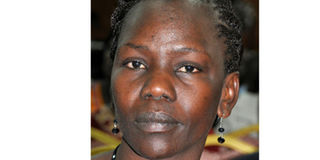Prime
400 infected with HIV daily, says Aids Commission boss

Dr Christine Ondoa
What you need to know:
The UAC boss appealed to parents, NGOs, and the general public to get involved in treatment of HIV/Aids patients.
Kampala
The Uganda Aids Commission has called for collaborative efforts to curb the increasing HIV prevalence in the country.
Addressing HIV/Aids focal persons from 79 districts in Kampala this week, Dr Christine Ondoa, the Uganda Aids Commission (UAC) Director General, said through partnership with Ministry of Health, Centre for Disease Control and Local Government, they are devising measures to reduce the pandemic.
Dr Ondoa appealed to parents, NGOs, schools and the general public to get involved in preventing and treating of HIV/Aids patients.
“We should, as partners, deliberate on how we can reverse this worrying trend. At the closure of every day, 400 new HIV infections occur and approximately 150,000 annually,” Dr Ondoa said.
She said new HIV infections continue to outstrip the capacity of government to initiate all eligible adults and children on HIV treatment due to financial constraints. She said the donor aid cuts over the anti-gay law that come into force early this year is most likely to make the situation worse.
Uganda’s HIV/Aids activities and programmes are largely financed by donors.
Prof Vinand Nantulya, the UAC chairperson, said in areas like Kasensero landing site on Lake Victoria, HIV/Aids prevalence is more than 45 per cent, far above the national rate of 6-7 per cent among both men and women.
“We need to integrate a combination of various preventive measures if we are to completely achieve the targeted zero infections. In landing sites, the situation is worse,” Prof Nantulya said
Some of the challenges curtailing HIV/Aids reduction are rooted in cultural practices like inheriting widows and widowers, promiscuity, polygamy and in some instances, rape.
In 2013, UAC, in collaboration with other stakeholders, revised policy guidelines to coordinate HIV/Aids programmes at local levels through Aids committees.



